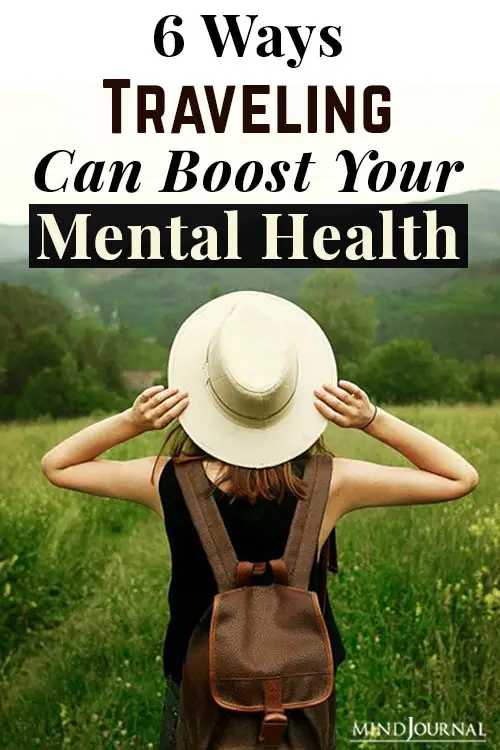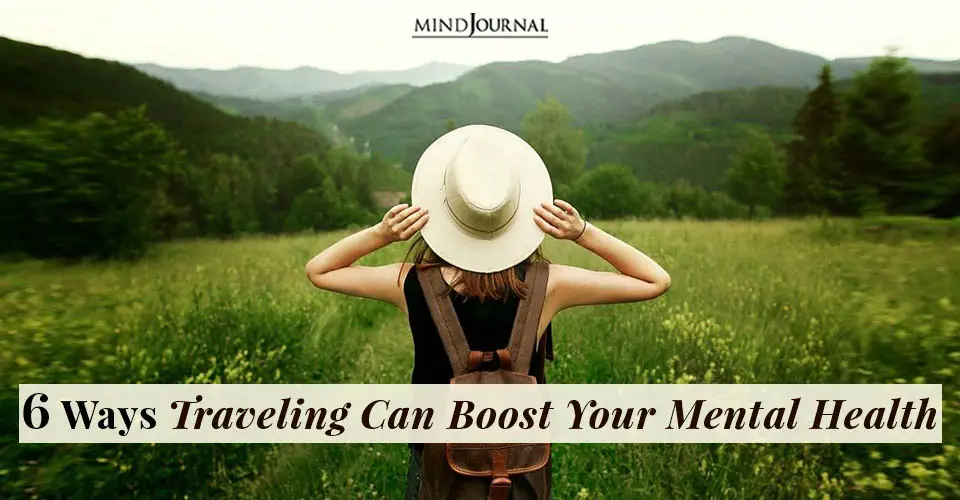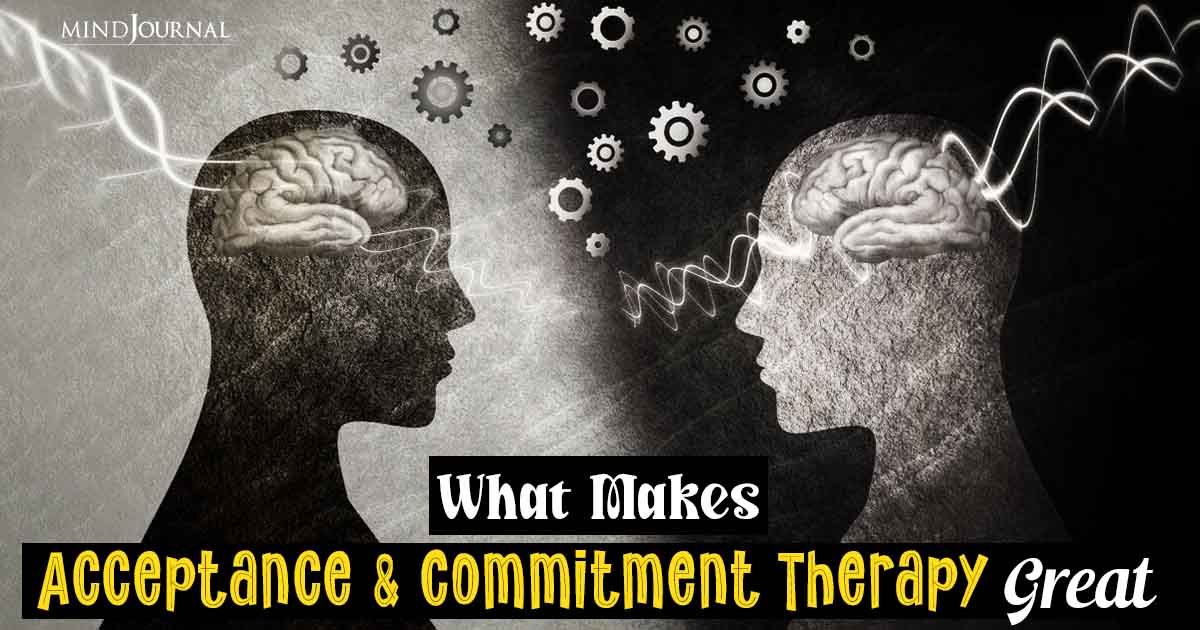If you are struggling with your mental health, and you feel like things are getting overwhelming, then traveling might be the best answer for you. Traveling is one of the most underrated things if you are trying to boost your mental health.
“To travel is to discover that everyone is wrong about other countries”. – Aldous Huxley
Do you ever feel as though you are trapped in your same daily routine as you are spinning in a hamster ball to no end? Even if you are happy with your current home life and career, our mundane tasks and rituals can leave us feeling like we are stuck in a rut. We begin to take things for granted, fight with our significant others over unimportant minor details, forget about the big picture and no longer recognize the beauty in life. Sometimes this can leave us feeling anxious or even depressed.
Taking a vacation, whether it is road tripping a couple of hours out of town or boarding a 20-hour flight to a faraway foreign country, can work wonders for our mental health, our personal lives, and our professional lives.
Research has shown that travel provides a number of benefits to our mental health. I am currently in East Africa taking a few months to unwind and disconnect from my life in the States in order to regain a new perspective on life.
Here Are 6 Ways Traveling Can Boost Your Mental Health
1. It broadens our perspective.
Traveling to a new place, whether near or far, pushes us out of our comfort zone. Whether you are experiencing a new way of life in a foreign country or trying a new local dish for the first time, traveling can open our minds (and stomachs) to a whole new way of life. Everything you see is new and this brings out your inner explorer.
You will find yourself pointing at an iconic architecture site that you thought you would only come across in magazines. You may stumble across an old beaten-path that leads to the most breathtaking vista point. You learn about new customs, new sights, new cultures, new languages and you learn to embrace the unfamiliarity of a different culture.
As a result, you come back home with a broadened view of how the rest of the world works. Traveling allows you to come back home with a broader view of the world, which can hopefully eliminate narrow-mindedness. I feel privileged to be able to know about so many cultures and to be able to share with my friends and family regarding what I have learned and experienced abroad.
2. It teaches us about the world.
Traveling forces us to learn how to navigate, communicate with others, and to learn about other cultures. Whether we are asking for directions in a foreign country or trying to navigate a new freeway out of state, we learn more about the world by learning how to get around.
In order to get around the world, we must communicate. We must ask for directions, speak with the ticket agent at the airline counter, compromise on a local taxi fare with the driver, and exchange pleasantries with fellow passengers.
Try striking up a conversation with the gal sitting next to you on the plane and ask your taxi driver about his local culture; you may be surprised how much you learn about the world through engaging with conversations while in transit. I have learned more from traveling than I have from my decades of formal education.
Related: 4 Ways Traveling Can Help Heal the Lonesome Feeling In You
3. It CAN strengthen relationships.
Sharing travel experiences with your other half can make your relationship with them stronger, according to a survey by the US Travel Association. Whether you are enjoying a romantic meal on a beach, you missed your international flight connection or you are floundering around in a place with a completely different culture, working together through the burdens and blissful mishaps of traveling can help strengthen your bond (or break it) with your travel partner.
Traveling cannot only teach you a lot about yourself but it can also teach you a lot about your significant other (or travel partner). Yes, traveling cannot only make relationships, but they can also break them too! One of my relationship testers is to always travel internationally with my partner in order to test out whether we make good companions.
4. It increases our happiness.
The effects of travel are not only felt during and after your trip but the anticipation of an upcoming trip can boost your mood. After all, don’t we all look forward to our next vacation? People are at their happiest when they have a vacation planned, a study by the University of Surrey found, and are also more positive about their health, economic situation, and general quality of life.
A study by Cornell University also found that we get more happiness from anticipating a travel experience in comparison to anticipating buying a new possession. It turns out that money can buy you happiness, but just not in the way that many of us expected. I spend most of my extra spending money on traveling as it truly does increase my overall happiness.

5. It provides stress relief.
Traveling allows us to reset our minds and forget about our chores and workload back home and instead; we can focus on the present moment. Having a shortlist of fun daily activities on our travel agenda can offer novelty and change in the form of new people, sights, and experiences.
I find that after I come back from a trip, I am a better daughter, a better friend, a better girlfriend, and a better employee because I was able to break away from my stress-related daily tasks and clear my head and heart.
Related: 20+ Best Meditation Music For Relief From Stress and Anxiety
6. It enhances creativity.
Immersing yourself in a new place with unfamiliar sights and sounds can boost our creativity. Creativity is directly related to neuroplasticity (the brain’s ability to reorganize itself by forming new neural connections throughout life), which means our brains are sensitive to change, influenced by new environments and experiences.
By changing our environment we can literally form new neuronal pathways enhancing our creativity. This is probably why I find myself only designing handbags and clothes when I am in foreign countries. I am a creative soul down to my core. I thrive on bright colors, art, music, and writing!
Written By Kristen Fuller Originally Appeared in Psychology Today
The more you travel, the more you see the world in all it’s glory. The more you travel, the more you know yourself. Traveling is one of those things that can bring about so many good changes in not just you, but your mindset also and that is probably the most important change. If you want to take better care of your mental health, then make it a point to at least travel once a year.









Leave a Reply
You must be logged in to post a comment.